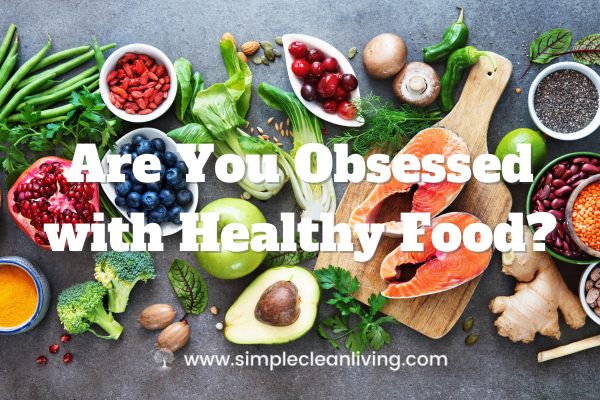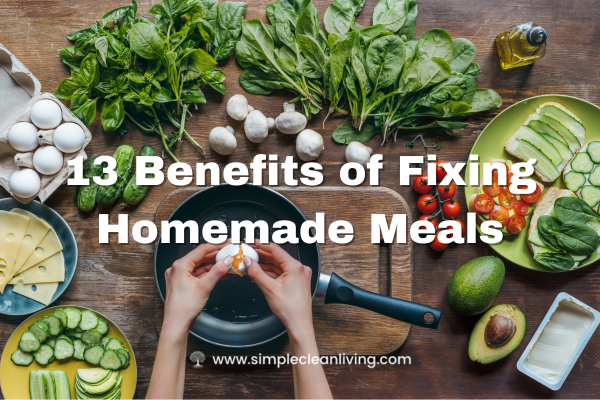Notice: I’m an affiliate for Amazon as well as other companies. Any links in this article may be affiliate links. I always appreciate it if you purchase something using my affiliate links. Doing so helps me to raise a little extra money that pays for the costs of running this site. And it allows me to continue bringing you quality content, all without costing you a thing! Thanks!
Many people start thinking about making a transition to healthier eating every day. One struggle that many people experience is giving up sugar-filled desserts. Now, I enjoy my desserts just as much as the next person and definitely have a sweet tooth. But luckily, adopting a traditional way of life does not mean that you have to walk away from dessert completely. In fact, there are plenty of great, healthy sugar substitutes to replace processed white sugar and high fructose corn syrup. And they work just as well and taste just as great! You will find these substitutes used in recipes throughout this site!
An unhealthy obsession
Americans currently consume an average of twenty teaspoons of sugar daily, which equals roughly 142 pounds of this unhealthy sweetener a year. And if you each a great deal of packaged and processed foods, it is almost impossible to avoid sugar!
Sugar is an anti-nutrient, which means that it actually leaches vital nutrients from the body. Because there is such a high level of consumption of sugar in the US, it is contributing to malnourishment in a growing number of people.
Many people make the mistake of switching from sugar and high fructose corn syrup to chemical artificial sweeteners. Make sure you avoid sugar-free sweeteners like Nutrasweet, Equal, and Sweet N’ Low at all costs! These artificial sweeteners have been linked to a host of health problems such as migraines, cancer, Multiple Sclerosis, digestive problems.
They are known to be carcinogenic, even though they have been deemed “safe” for consumption. And a study was done that showed that artificial sweeteners actually increased the appetite for sweet, sugary foods and caused weight gain! (http://www.ncbi.nlm.nih.gov/pubmed/18298259) All artificial sweeteners are best to be completely avoided due to the potentially serious health risks, not to mention the possible increase of your waistline!
Because our bodies are naturally programmed to consume sweet foods, I encourage you to adopt a couple of these healthier sweeteners….in moderation. Just because it is natural does not mean that you can have free reign and consume as much as you want!
Some alternative natural sweeteners
Raw honey
honey is nature’s sweetener and is a good replacement for sugar. It is easy to use in a multitude of different recipes. But you may not know that honey also has anti-bacterial and anti-viral properties as well. That’s why hot tea with honey and lemon has been a long-time home remedy. Make sure your honey is raw (and preferably local).
Processed honey that is found in the grocery store has a high glycemic index, whereas raw honey has a glycemic index of 30. There has also been concern that some of the less expensive store brands of honey are being mixed with high fructose corn syrup and sold to the public, so always look for pure raw honey or buy local from a beekeeper. This is one of my go-to sweeteners. It can be used in baking and cooking as well as in beverages. We always buy local honey from a trusted source.
Coconut sugar
this type of sugar comes from the coconut tree and can be found in both liquid and granule form. It is very low on the glycemic index, coming in at about 35, and so it does not raise blood sugar levels as white sugar does. This type of sugar is safe for diabetics to use, and can be used in baking. This is one of my go-to sweeteners and I keep both the granule and syrup forms in the house.
Xylitol
This natural sweetener is made from either tree fiber or corn cobs). It is popular with diabetics because it is low on the glycemic index. It is a sugar alcohol and so it can cause gas, bloating, and diarrhea. This sweetener can also be toxic to dogs in small doses, so caution should be used if you have dogs in the home. If you choose to add xylitol to your sweetener list, make sure you purchase a brand that is certified organic.
Most corn in the US and China (where a lot of xylitol originates) has been genetically modified to contain its own pesticides. Since they are now discovering the dangers of genetically modified corn, it’s best to pay a little extra for the organic product which by law must be free of genetically modified ingredients.
Maple syrup
Maple syrup is made from boiled-down maple tree sap and contains vital minerals. It adds great flavor to food and is great for baking. Be sure to buy 100% pure maple syrup (organic preferred, of course) and not maple-flavored corn syrup, which is what most of the pancake and waffle syrup on the grocery store shelves is made of.
Grade B is stronger in flavor and said to have more minerals than Grade A, although either can be used. I always try to keep a bottle of this in the cupboard. I love to use this to sweeten my oatmeal…yum! This sweetener is not low on the glycemic index, so it is not the best choice for diabetics. Since it can elevate blood sugar levels, it is best to use this sweetener sparingly!
Maple sugar
Maple sugar is created when the sap of the sugar maple is boiled for longer than is needed to create maple syrup. Once most of the water has evaporated, all that is left is the solid sugar. Maple sugar is about twice as sweet as standard granulated sugar, but it is much less refined. This is not a good substitute for diabetics because it is not a low glycemic sweetener. It is best to use this sweetener sparingly.
Unsulphured blackstrap molasses
Organic molasses is probably the most nutritious sweetener derived from sugar cane or sugar beet. This distinct sweetener is made by a process of clarifying and blending the extracted juices. The longer the juice is boiled, the less sweet, more nutritious, and darker the product is. Molasses imparts a very distinct flavor to food. Blackstrap molasses is the most nutritious variety and is packed with vital nutrients such as iron, calcium, magnesium, potassium, b vitamins, and manganese. It is also low on the glycemic index and so it can be a good choice for diabetics.
Turbinado sugar
I’ve lumped these together because essentially they are created by the same process….the process of extracting juice from the sugarcane plant, evaporating the water from the juice, and then grinding the results down. Sucanat does tend to come in a little more coarse texture than the Rapadura and whole cane sugar. These types of sugar contain all of their original molasses content which gives them more of a brown sugar taste.
They are also organic, rich in vitamins and minerals, especially iron, and unrefined. They can be substituted easily in baking in a 1/1 ratio for white sugar. This is not a low glycemic sweetener, so it is best to be avoided by diabetics. Because it can significantly raise blood sugar levels, it is best to use it sparingly. I personally use this on occasion for baking. It by far produces the best flavor and results of any of the sweeteners!
All of the sweeteners on this list are safe for those with Celiac and gluten intolerance!
Photo credit: © Aleksandr Stennikov | Dreamstime.com




